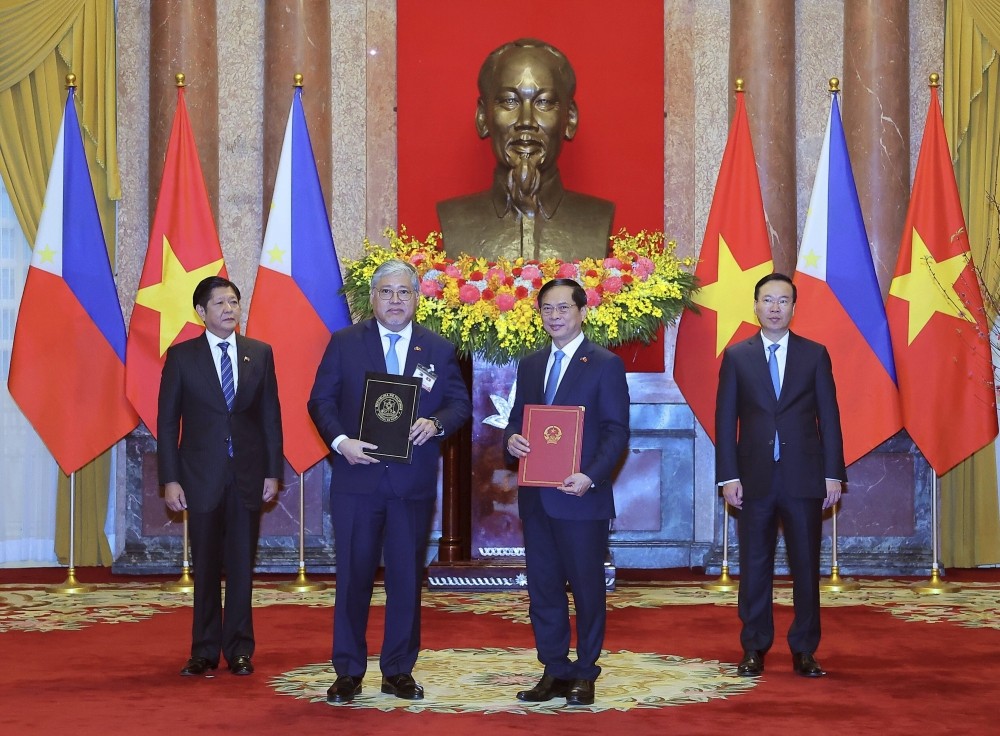30/01/2024
30/01/2024

HANOI, Vietnam, Jan 30, (AP): The Philippines and Vietnam signed agreements Tuesday to prevent incidents in the South China Sea and broaden cooperation between their coast guards in a growing alliance that will likely be frowned upon by China, which claims virtually the entire waters.
The agreements, along with discussions on enhancing information-sharing and training exchanges between the Vietnamese and Philippine militaries, were forged during a visit to Hanoi by Philippine President Ferdinand Marcos Jr.
Both sides agreed to boost trade and investment and signed a key deal on rice.
The Philippines and Vietnam have had especially tense confrontations with China in the strategic waterway and key route for global trade in recent years. Territorial faceoffs in the high seas between Chinese and Philippine ships intensified last year, fueling fears of a wider conflict that could involve Washington, Manila’s longtime treaty ally.
Although Chinese and Philippine officials agreed earlier this month at a meeting in Shanghai to take steps to deescalate tensions, Marcos while in Hanoi raised his concerns over the long-seething disputes and cited increasingly aggressive actions by the Chinese coast guard.
"There continue to be … unilateral and illegal actions that violate our sovereignty, sovereign rights and jurisdiction and exacerbate tensions in the South China Sea,” Marcos said in a call to Vietnamese Prime Minister Pham Minh Chinh. Transcripts of his remarks were issued by the presidential office in Manila.
The Philippine president cited a water cannon assault by the Chinese coast guard that damaged a Philippine vessel on Dec 10 near the Second Thomas Shoal and a similar incident in another disputed area, the Scarborough Shoal.
"We are firm in defending our sovereignty, sovereign rights and jurisdiction against any provocations,” Marcos said. "But at the same time, we are also seeking to address these issues with China through peaceful dialogue and consultations as two equal sovereign states.”
Marcos said that in his talk with Chinese President Xi Jinping on the sidelines of the Asia Pacific Economic Cooperation forum in the US last November, he stressed "that need to deescalate tensions in the South China Sea, to which he agreed."


